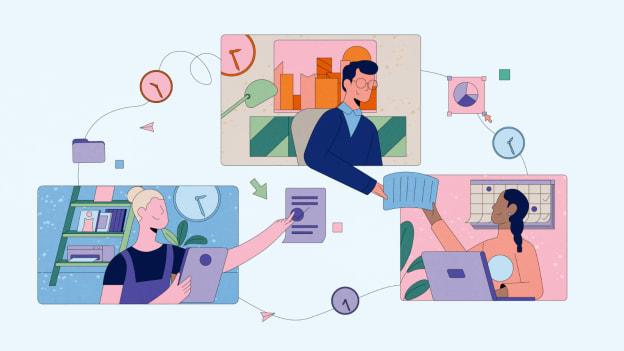Futuristic workplaces- Why betting big on digital culture can help build high-performing organization

Over the last few years, a discourse on the future has dominated a lot of discussions about talent, organizations, and culture. Be it future skills, or the future of work, or workplaces of the future, we have been trying to identify what will be required for organizations and people to navigate this future successfully. The pandemic has accelerated this change and many organizations find themselves having to adjust their processes to meet this future need.
As we change and adapt to an increasingly connected world, our dependence on mobile devices, AI, chatbots, and other digital ways of working has made us work faster and more efficiently. Technology has become an enabler and enterprises are fast harnessing the power of digital as they connect with customers, employees, and the ecosystem around them. It is evident that the future of work will be rooted in technology, from cloud-based software to machine learning. But technology on its own is not enough. People, not just technology, will define the future of work.
Companies will need to be proactive in creating greater transparency in communication, and policies around digital in the workplace. The world is more open, connected, and fast-moving. As the new generation enters the workforce, they expect to connect with anyone in their organization without having to ask for permission. They expect to have a voice. They expect to be heard. They expect to use new types of tools. Therefore communication, collaboration, and connectivity will drive the major changes in the future of work.
In the near future, a majority of the global workforce will be millennials. The corporate cultures of most large organizations will be directly shaped by this generation’s habits and expectations. Providing an environment where employees feel valued, independent, and part of a team will be more important than ever before. Also, flexibility to work beyond the office, i.e., “work from home” or working remotely will be important and must be included in the organization’s policy.
Millennials are clearly no longer willing to work in a 9 to 5 work environment. Thus, establishing a digital culture allows them to become a part of a collaborative, creative, and autonomous workplace that they crave for. With the competition to attract and retain the best talent, it becomes more and more important to portray your brand as a workplace people want to be a part of. It is necessary for organizations to position the company needs in such a way that seems to be an opportunity one can’t miss. Always remember you are positioning yourself as a brand so that only capable ones can represent you. Thus, positioning yourself appropriately is the key and here culture will play a significant role.
Not only this, but digital culture also increases employee engagement and gives them a feeling that they are valued and are an important pillar of the organization as it has a model that permits them to bring their best self to work, voice their opinions, and create an impact.
At the heart of the transition towards a digital and high-performing organization will be new attitudes, beliefs, and values towards digital tools, information, and the work itself. A “digital-first” mindset will allow teams to demonstrate a proactive attitude toward digital possibilities. As enterprises digitize their operations, employees will be expected to be skilled at innovating with information. Data-driven decision-making and collaborative learning will ensure that insights and solutions move rapidly and readily across organization boundaries.
High-performing organizations operate as empowered networks, rather than independent silos. In the past, most workplaces were designed for efficiency and effectiveness, leading to complicated and siloed organizations. Instead of mere efficiency, successful organizations in the future will be designed for speed, agility, and adaptability. The workplace of the future will be an agile organization that can transform processes and services in a strategic way to enable them to compete and win in the global business environment.
Thus, the role of HR professionals is very crucial in driving digital culture in the organization and help to build a high-performing organization. As, they help create and piece together the new structures, policies, and processes that make up the new culture and keep it running.
















